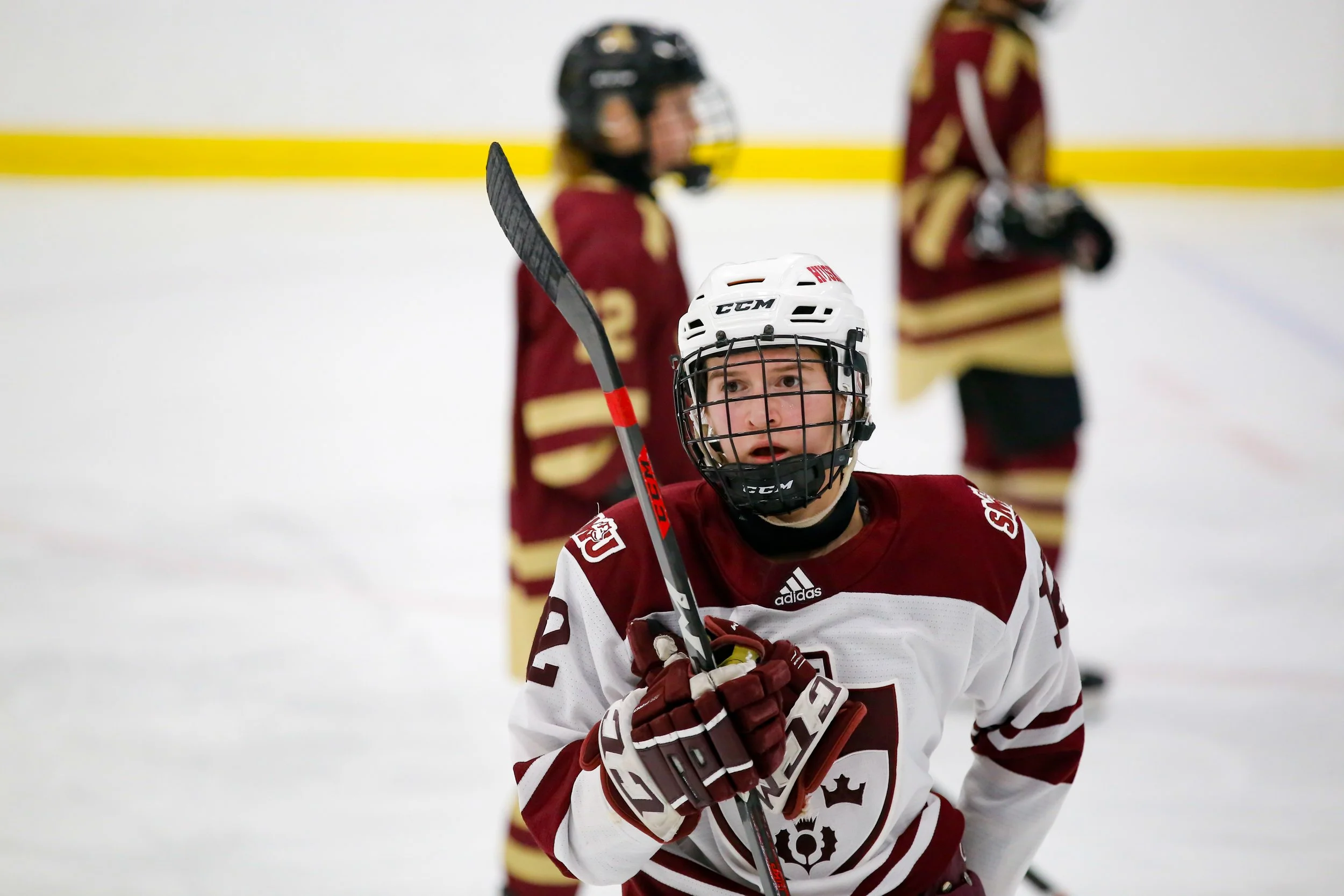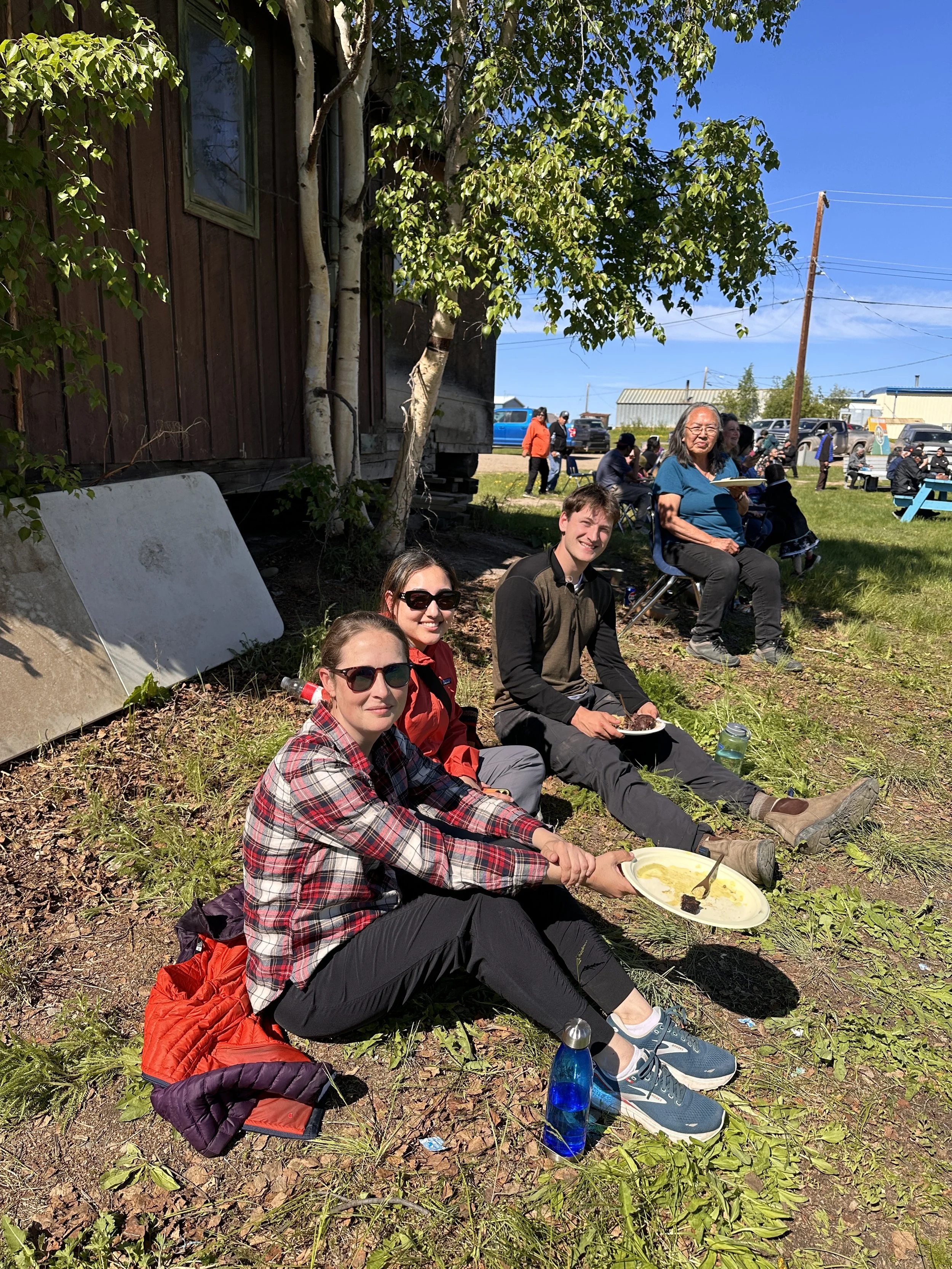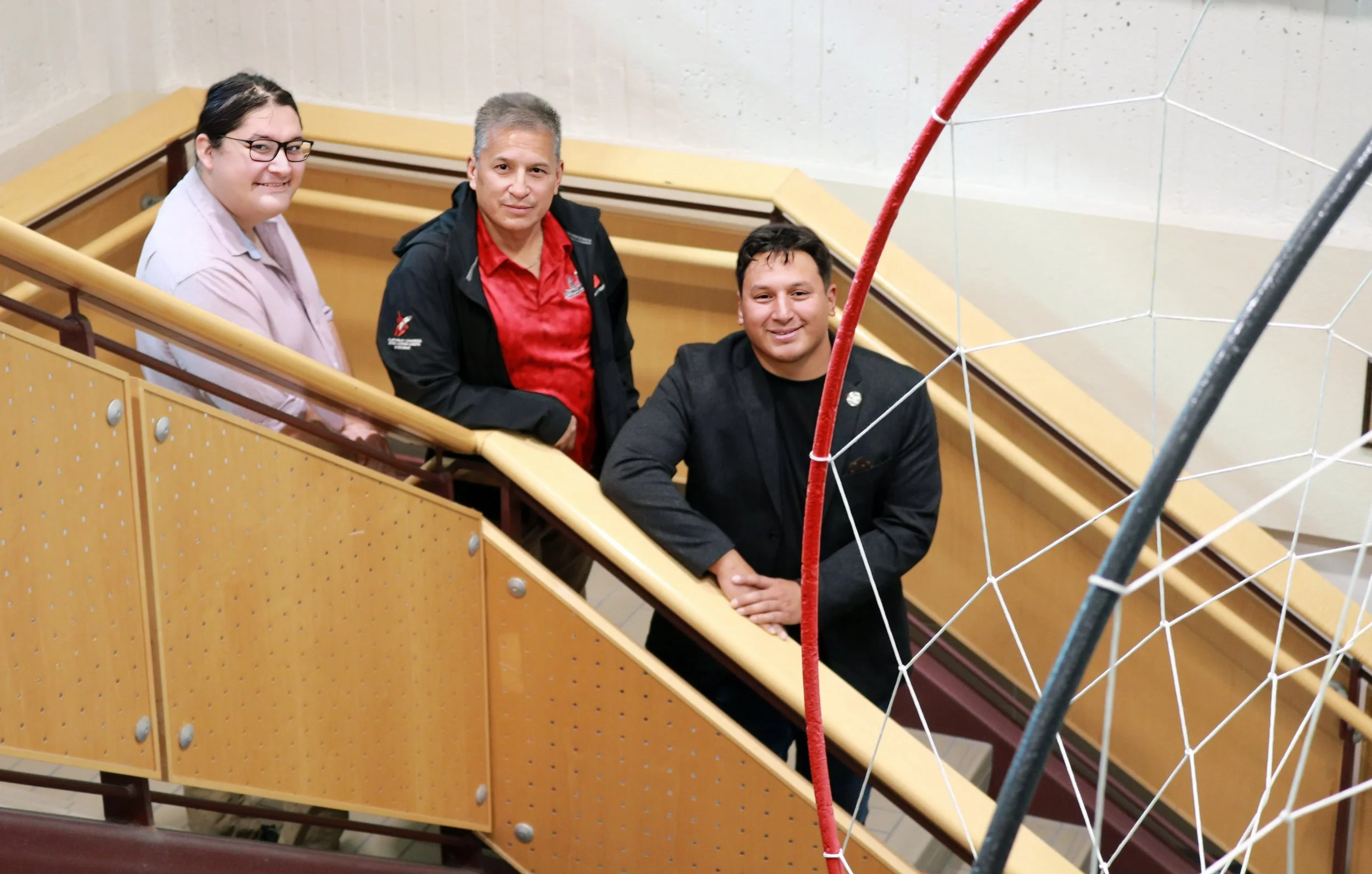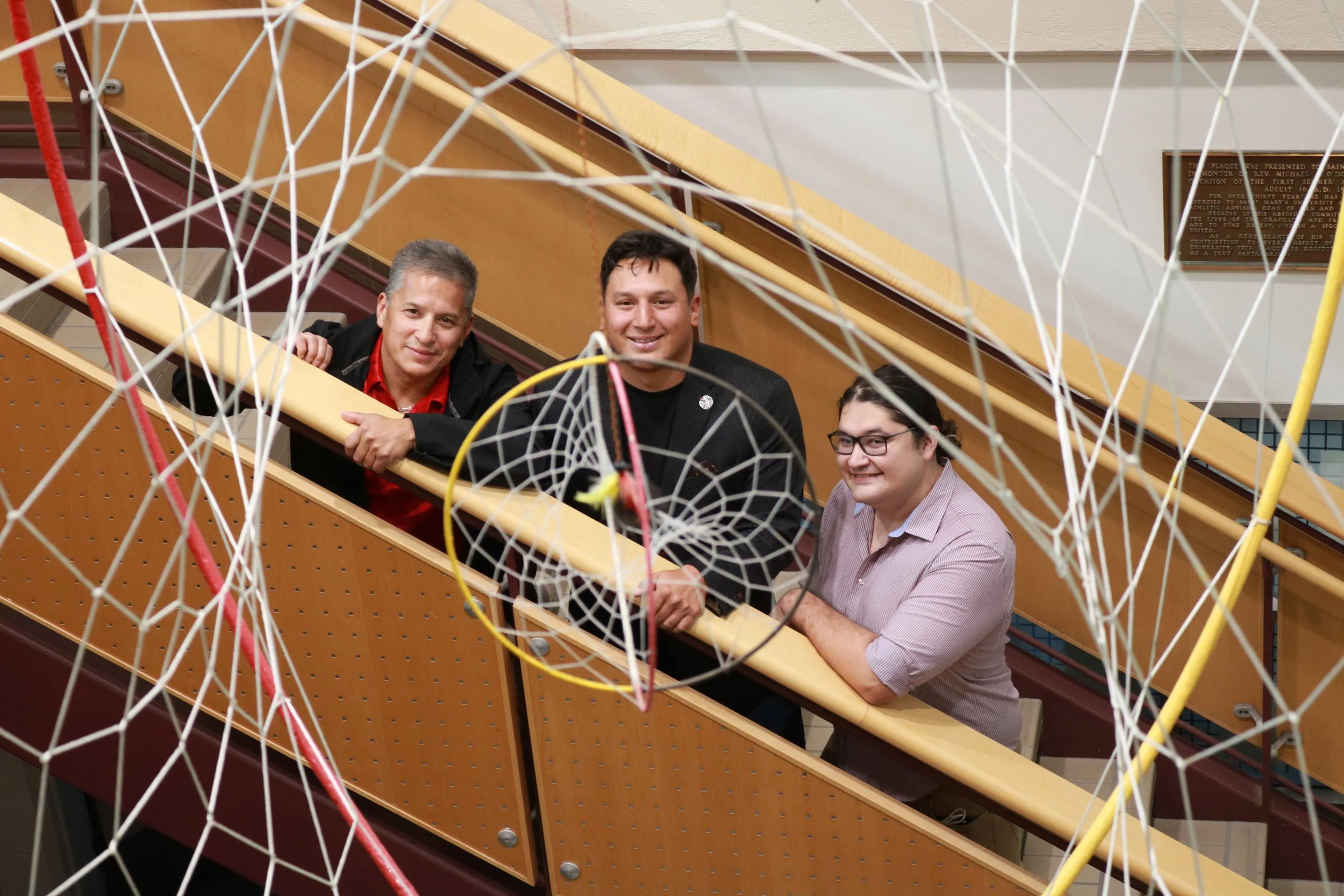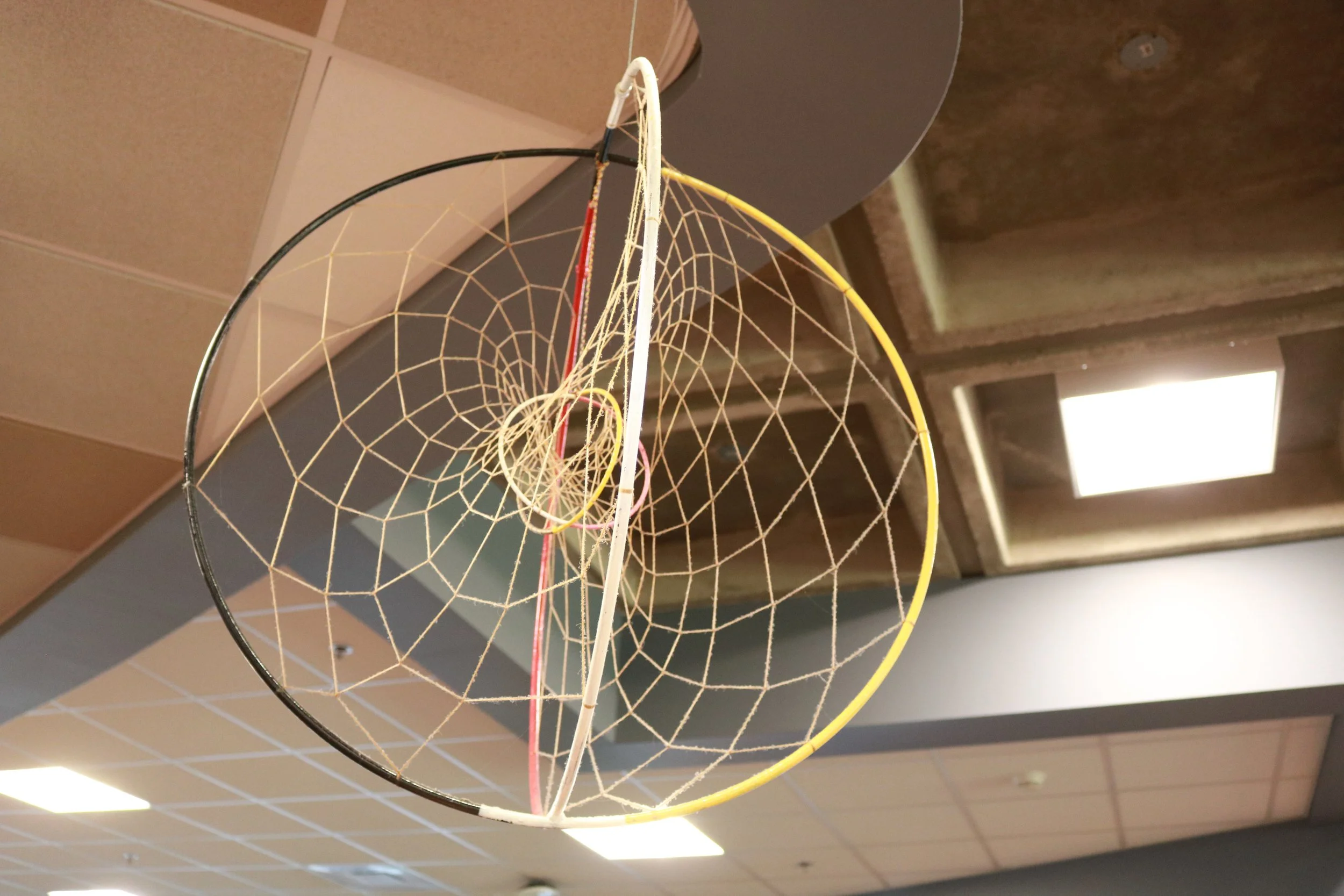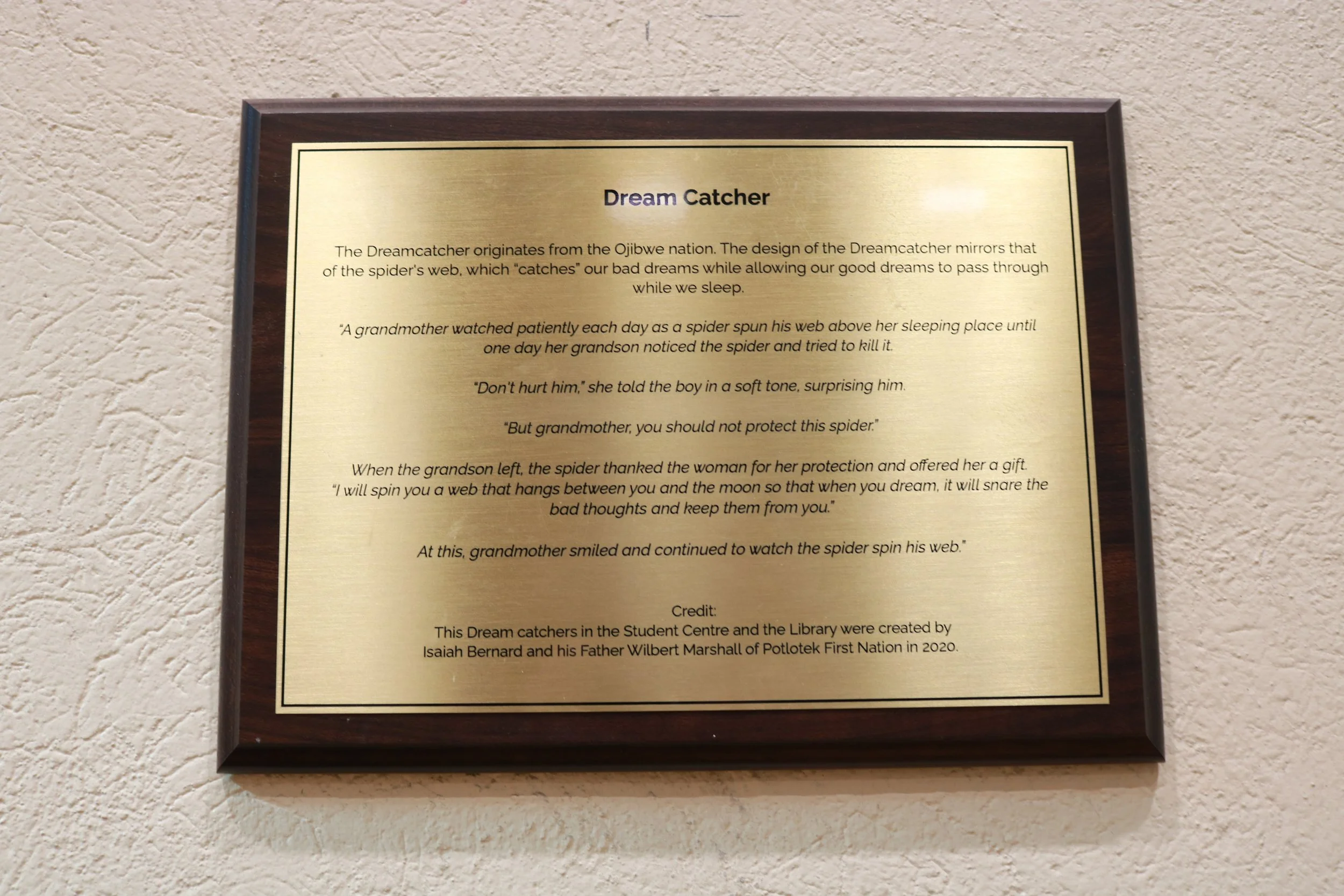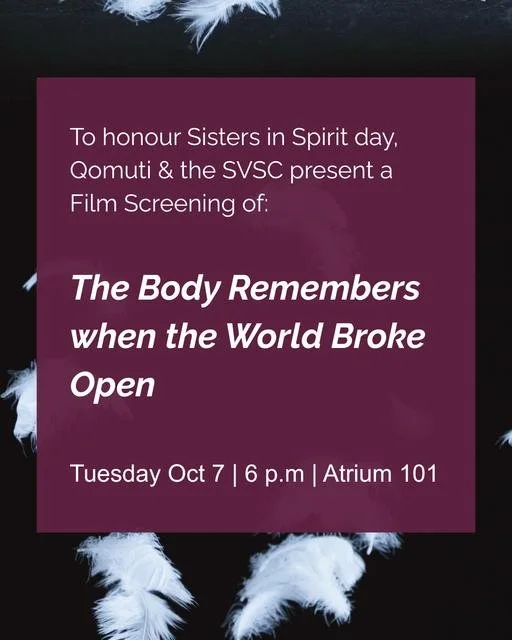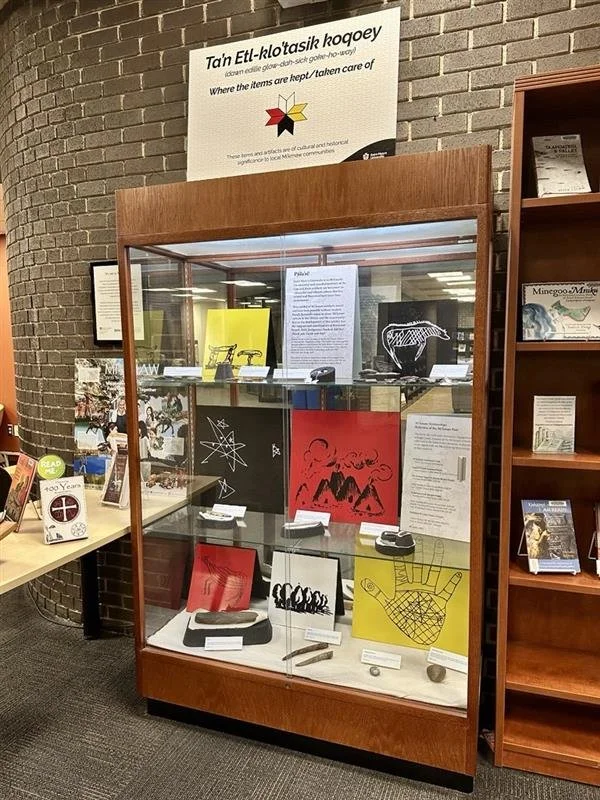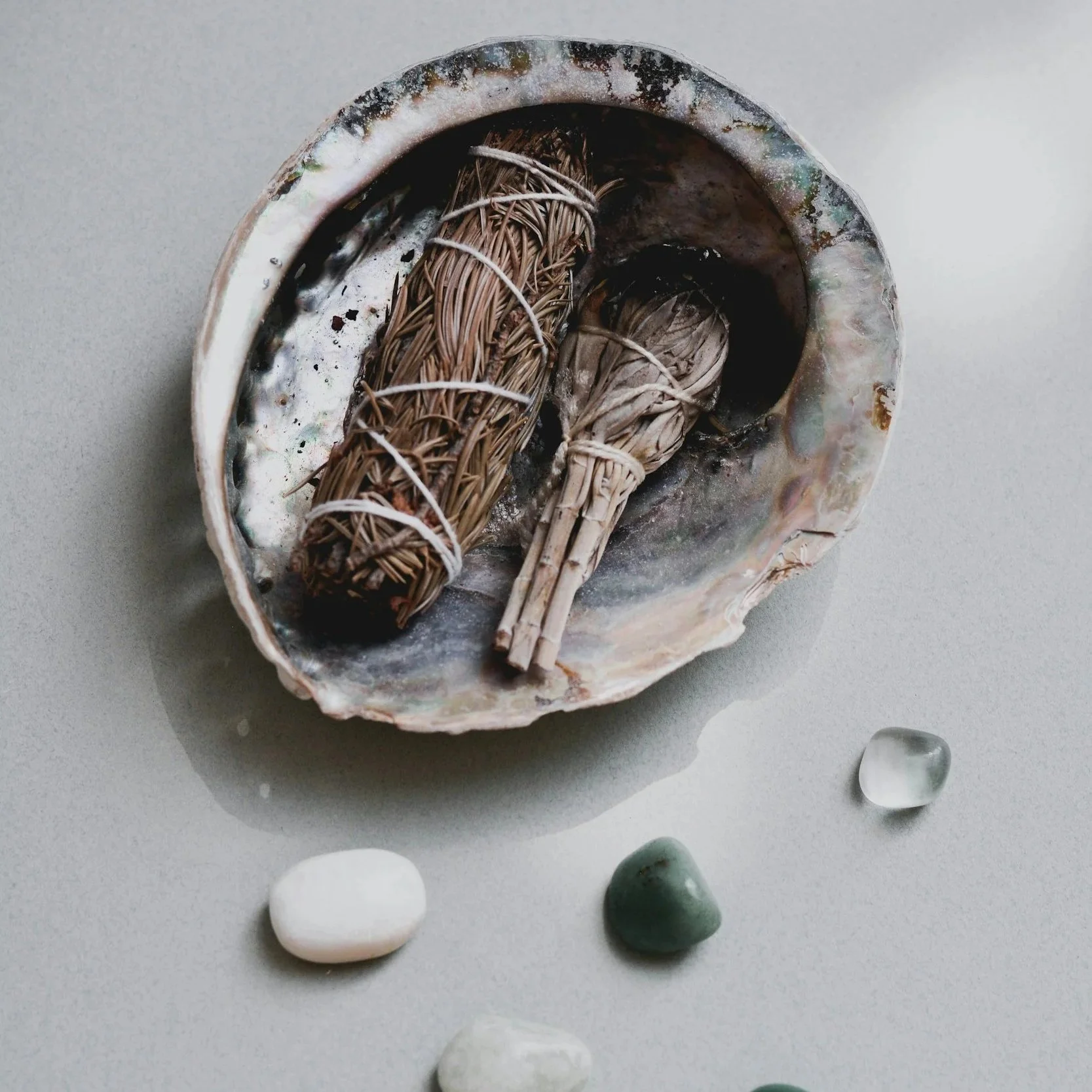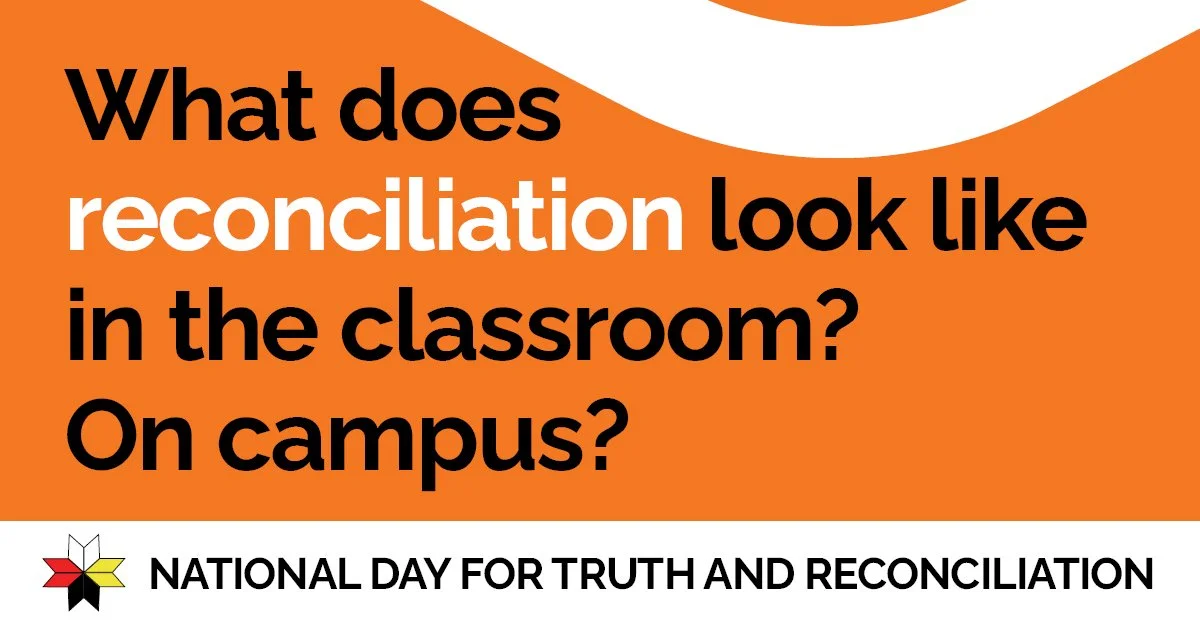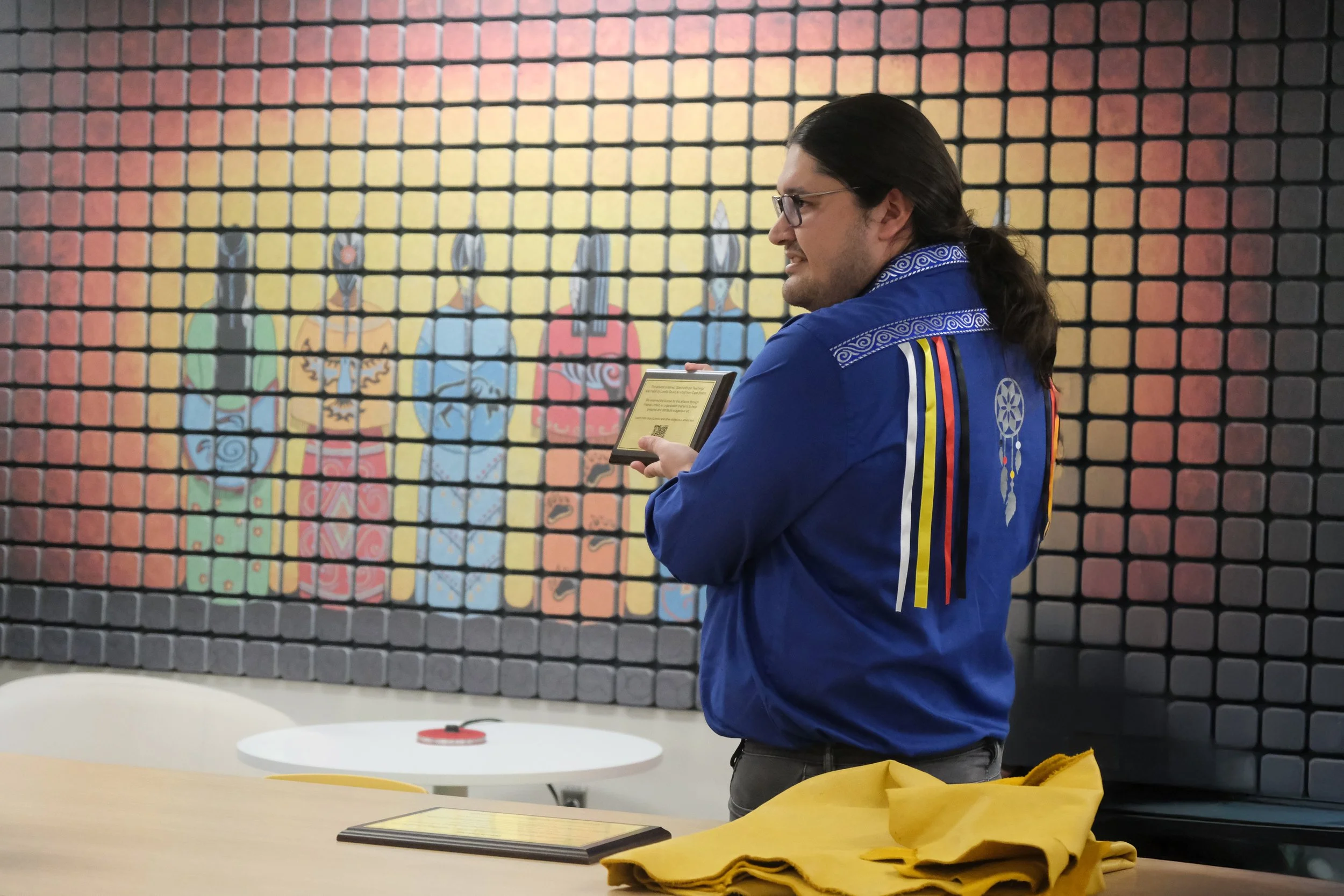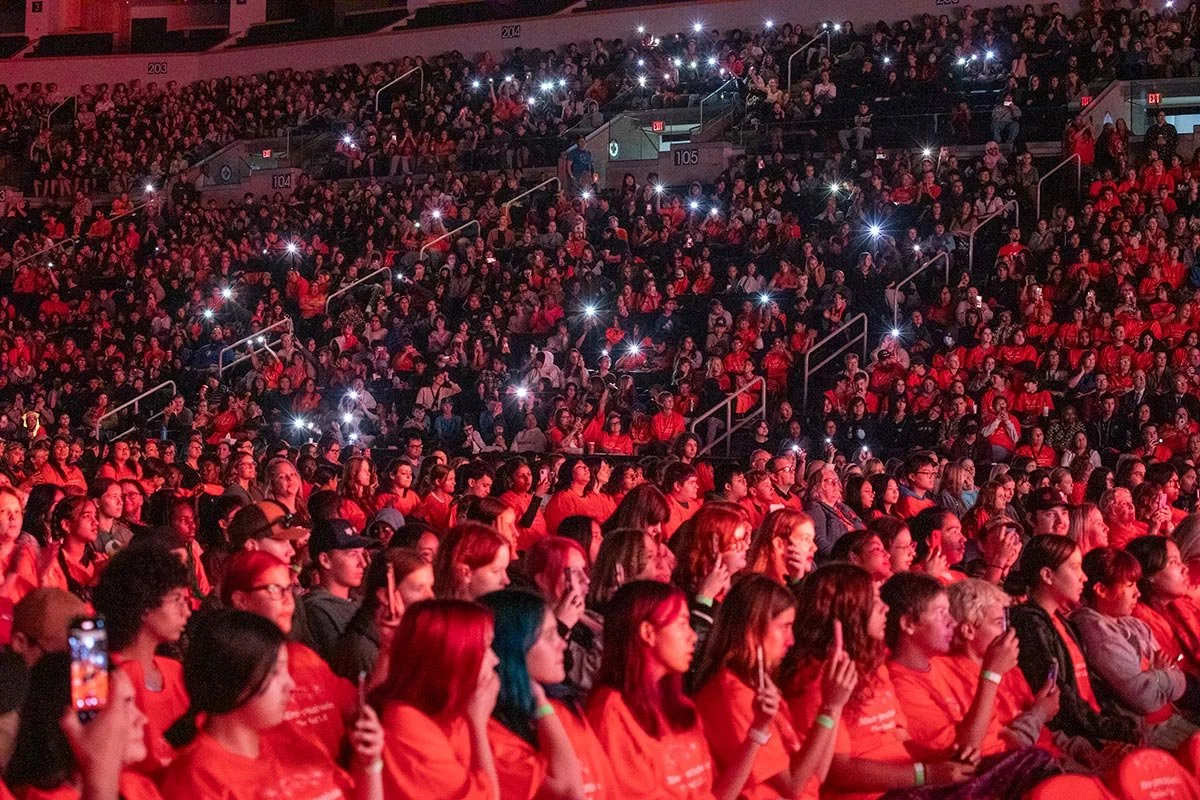SMU Huskies players put red tape on their hockey sticks as a visual statement against racism in sport.
Saint Mary’s University has a deep connection with the Red Tape movement.
The movement began in 2019, when former SMU student Logan Prosper—of We'koqma'q First Nation—was on the receiving end of racial abuse during a minor hockey game in Cape Breton (Unama’ki). Logan, and his father Phillip Prosper, started what is now an internationally recognized statement against racism, wherein hockey players wrap their sticks with red tape as a sign of solidarity with athletes in all levels of hockey.
The movement picked up quickly, as athletes across Canada spoke out about their experiences with racism in the sport, noting the generational impact of the issue and the effect it continues to have—especially on Indigenous youth.
SMU Huskies were early adopters of the movement, launching their first Red Tape game in January 2020 in support of the Prospers’ vision. Five years later, Saint Mary’s continues to host Red Tape games in solidarity with athletes across Canada and the world, and this year is no different.
Former SMU Husky Erin Denny BSc’25 hits the ice at one of last year’s Red Tape games.
This year, Ryan Francis (Saint Mary’s first Indigenous Visiting Fellow) is once again working together with Athletics & Recreation and the Scott McCain & Leslie McLean Centre for Sport, Business and Health to organize the Red Tape events on Saturday, November 22.
Francis grew up in Cole Harbour—an area known for its hockey history—and is from Wasoqopa'q First Nation. He’s had his own experiences with racism during his time in hockey, and he has done exemplary work to address systemic barriers in the sport, including launching the Indigenous Girls Hockey Program, a program that sees him working closely with former SMU Husky Erin Denny BSc’25.
Francis also founded the Genevieve Francis Memorial Fund, an organization that “[provides financial support] to communities, and charities in Atlantic Canada who lead initiatives that create opportunities for Indigenous women and girls to experience sport, recreation, and physical activity in a meaningful way.”
This Saturday, November 22, Saint Mary’s will host two games – one with the women’s hockey team and one with the men’s hockey team – to raise awareness of the movement. The Scott McCain & Leslie McLean Centre for Sport, Business and Health will also be hosting a draw for six copies of Beyond the Rink to encourage attendees to examine the “complicated role of sports in residential school histories.”
“What makes this matter is the ongoing commitment and recognition of this cause,” says Francis. “Showing up every year and saying that this matters and that this is a priority for the athletic community is a key part of how the university creates [more inclusive space for Indigenous athletes.]”
To support the movement by attending our Red Tape Games, see the Huskies website here: Saint Mary's Huskies - Universe
For more about the Genevieve Francis Memorial Fund, see the website at Home | GFMF.


